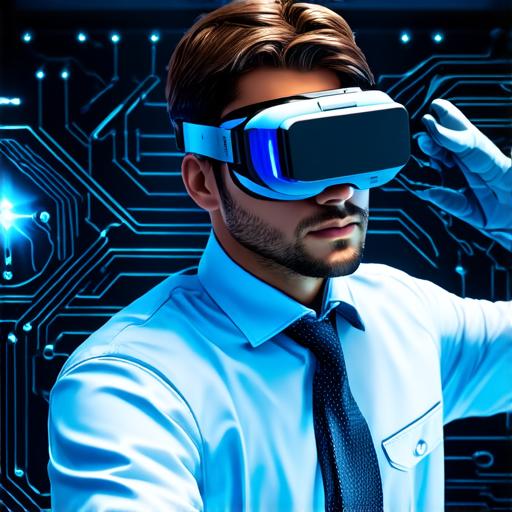In the realm of digital innovation, few technologies have captured our imagination quite like Virtual Reality (VR). This immersive technology is no longer confined to the realms of science fiction; it’s here, and it’s evolving at an astonishing pace.
The Evolution of VR: A Journey from Gaming to Everyday Life
From the rudimentary VR experiences of the 90s, we’ve come a long way. Today, VR is transforming industries as diverse as healthcare, education, and real estate.
For instance, medical students can now practice surgeries in a simulated environment, reducing risks for patients and providing invaluable training.
The Quest for Realism: The Role of Eye-Tracking Technology
One of the most significant advancements in VR is eye-tracking technology. This innovation allows VR headsets to follow the user’s gaze, creating a more immersive and realistic experience.
As Dr. John Hennessy, former CEO of Google, puts it, “VR will become as important as smartphones.”
The Dawn of Wireless VR: A Leap Forward
Wireless VR is another game-changer. Gone are the days of being tethered to a PC.
With wireless VR headsets, users can move freely within their virtual environment, enhancing the sense of immersion and interactivity.
The Future of VR: A Blend of Realities
The future of VR lies in its ability to seamlessly blend with the real world. Augmented Reality (AR) and Mixed Reality (MR) are technologies that promise to do just that.

Imagine being able to interact with virtual objects in your physical environment, or even stepping into a virtual world while still being aware of your immediate surroundings.
VR: A New Frontier for Human Interaction
VR is not just about technology; it’s about human connection. It offers new ways for people to interact, collaborate, and empathize with each other.
Whether it’s a virtual meeting room or a shared virtual experience, VR is redefining how we communicate and relate to one another.
FAQs
Q: What industries are benefiting from VR technology?
Industries such as healthcare, education, real estate, and automotive are among those benefiting from VR technology.
Q: How is eye-tracking technology improving VR experiences?
Eye-tracking technology allows VR headsets to follow the user’s gaze, creating a more immersive and realistic experience.
In Conclusion
The future of virtual reality is not just about games; it’s about transforming our lives in ways we can barely imagine. As we continue to push the boundaries of this technology, we open up new possibilities for human interaction, learning, and innovation.
